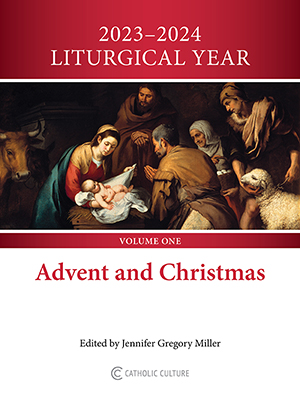Catechism of the Catholic Church
2104 "All men are bound to seek the truth, especially in what concerns God and his Church, and to embrace it and hold on to it as they come to know it." 26 This duty derives from "the very dignity of the human person." 27 It does not contradict a "sincere respect" for different religions which frequently "reflect a ray of that truth which enlightens all men," 28 nor the requirement of charity, which urges Christians "to treat with love, prudence and patience those who are in error or ignorance with regard to the faith." 29
2105 The duty of offering God genuine worship concerns man both individually and socially. This is "the traditional Catholic teaching on the moral duty of individuals and societies toward the true religion and the one Church of Christ." 30 By constantly evangelizing men, the Church works toward enabling them "to infuse the Christian spirit into the mentality and mores, laws and structures of the communities in which [they] live." 31 The social duty of Christians is to respect and awaken in each man the love of the true and the good. It requires them to make known the worship of the one true religion which subsists in the Catholic and apostolic Church. 32 Christians are called to be the light of the world. Thus, the Church shows forth the kingship of Christ over all creation and in particular over human societies. 33
2106 "Nobody may be forced to act against his convictions, nor is anyone to be restrained from acting in accordance with his conscience in religious matters in private or in public, alone or in association with others, within due limits." 34 This right is based on the very nature of the human person, whose dignity enables him freely to assent to the divine truth which transcends the temporal order. For this reason it "continues to exist even in those who do not live up to their obligation of seeking the truth and adhering to it." 35
2107 "If because of the circumstances of a particular people special civil recognition is given to one religious community in the constitutional organization of a state, the right of all citizens and religious communities to religious freedom must be recognized and respected as well." 36
2108 The right to religious liberty is neither a moral license to adhere to error, nor a supposed right to error, 37 but rather a natural right of the human person to civil liberty, i.e., immunity, within just limits, from external constraint in religious matters by political authorities. This natural right ought to be acknowledged in the juridical order of society in such a way that it constitutes a civil right. 38
2109 The right to religious liberty can of itself be neither unlimited nor limited only by a "public order" conceived in a positivist or naturalist manner. 39 The "due limits" which are inherent in it must be determined for each social situation by political prudence, according to the requirements of the common good, and ratified by the civil authority in accordance with "legal principles which are in conformity with the objective moral order." 40
Notes:
English Translation of the Cathechism of the Catholic Church for the United States of America © 1997, United States Catholic Conference, Inc.







